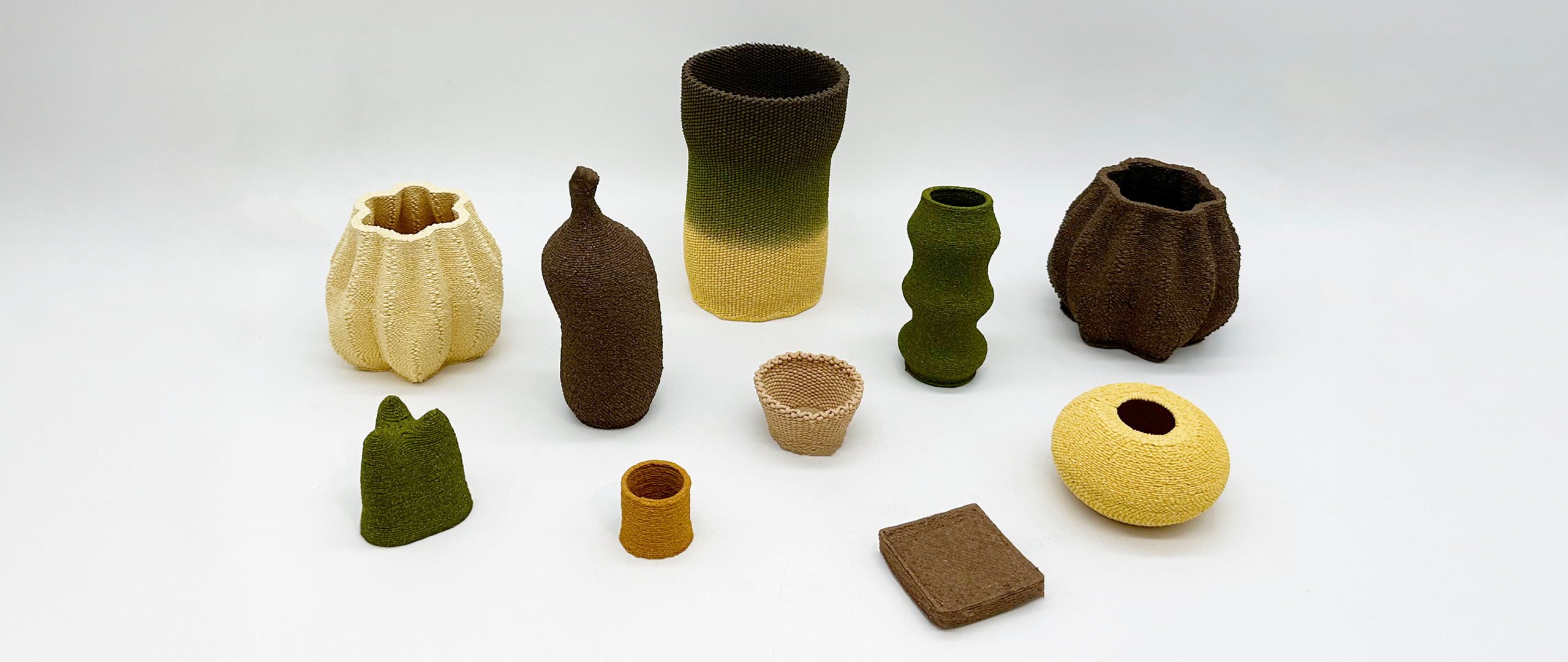3D Printing with Biomaterials
In-person at InterAccess | Register here
Registration Fee: FREE, spots are limited
6 PM: Virtual talk, followed by a Q&A (online – open to all)
7 – 9 PM: In-person biomaterial making and experimentation (in-person – spots limited)
Turn yesterday's waste into tomorrow's materials! Join us for an exploration of new biodegradable materials that transform everyday discards—eggshells, fallen leaves, sawdust, and orange peels—into 3D printable pastes. This hybrid workshop begins with a virtual presentation and Q&A, followed by a hands-on making session where you'll experiment with making and extruding your own biodegradable materials. Whether you're a sustainability enthusiast, maker, or simply curious about circular design, you'll leave with new knowledge, practical skills, and your own creation made from what was once destined for the compost bin!
For those attending the in-person session, participants are encouraged to bring their own bio-waste ingredients to experiment with, which can include:
- sawdust
- dried orange peels
- dried leaves
- eggshells
- used dried coffee grounds
- used dried tea leaves
Header image courtesy of the artist.
About the Facilitator
Fiona Bell is an Assistant Professor of Human-Centered Computing at the University of Maryland, Baltimore County, directing the Entangled Ecologies Lab. With a Postdoctoral Fellowship in Computer Science from the University of New Mexico, a PhD in Creative Technology and Design from the University of Colorado Boulder, and a BS in Mechanical Engineering from Santa Clara University, her research intersects digital fabrication, materials science, critical studies, and biodesign. Drawing on these disciplines, she develops novel biomaterials (e.g., biobased and biodegradable materials) that integrate with digital technologies to create sustainable and responsive bio-digital interfaces. By bridging the biological and digital worlds, she strives to build regenerative futures for planetary flourishing.
This FREE workshop is presented as part of the Sustainable Practices series, made possible through funding from the Microsoft Toronto Community Fund, supported by Microsoft.
Accessibility Information: We are located on the second floor of the building, which is accessible by two flights of stairs or an elevator. The front entrance has an automatic push door and is accessible by ramp or a short flight of stairs. Inside, all InterAccess facilities are on the same level, including a single-user accessible washroom.
Questions? If you have any questions about the workshop or special requirements, please contact us at education@interaccess.org.

